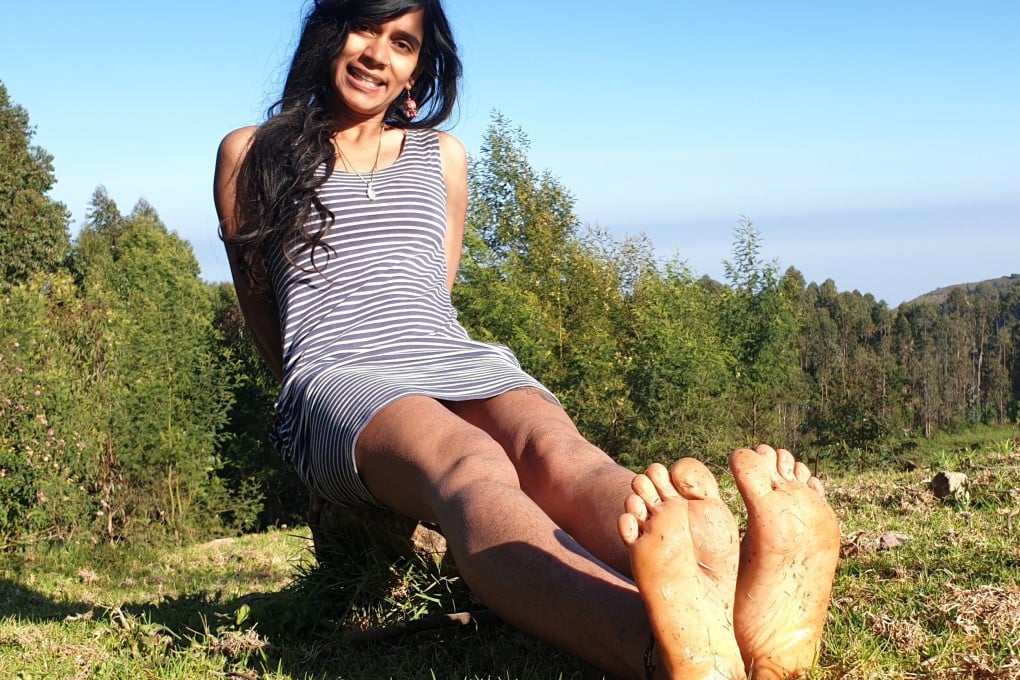Could you benefit from barefoot walking? Meet the people taking off their shoes in the name of health or for a better connection with Mother Nature
- One woman kicked her shoes off last year in India and hasn’t put them back on since, while a grandmother goes shoeless in the snow in the Czech Republic
- They are just two of a number of people walking around barefoot for reasons ranging from comfort to wanting to improve their physical and mental health

Kartika Dubey kicked off her shoes in February 2020 after moving to a village in the Palani Hills in southern India. It was easier going barefoot in the lush upland surroundings.
She goes barefoot beyond the village – to the nearest town, Kodaikanal, and on visits to bigger cities such as Chennai and Lucknow. YouTube videos showcase her shoeless life, walking along wet roads, shopping in a supermarket and roaming through grassy meadows.
Many people like Dubey have been conditioned to wear shoes but choose to go barefoot all, or most of, the time. Their reasons range from wanting to improve their physical and mental health, to comfort, to spiritual reasons and practising sustainable living.
Zlatica Mikytová went barefoot for medical reasons three years ago. The pensioner and grandmother of six lives in the town of Obedkovice in the Czech Republic, and enjoys holidays with other barefoot friends, walking in the woods, and even being shoeless in the snow.